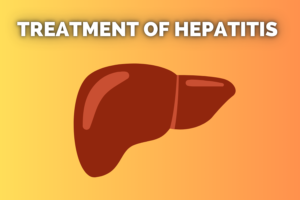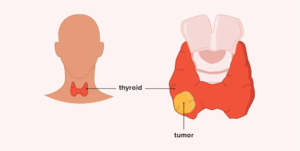Health Benefits of Quitting Alcohol For 30 Days

Alcohol consumption can damage your body in several ways. If you’ve ever gotten drunk, you know what I’m talking about. It only takes a few shots for your brain to start feeling foggy, clumsy, slower and dizzy. The next day, you might not remember a few things from last night, your head hurts, you’re thirsty and you feel sick and tired all day. And all of these are just the immediate effects of only one night of heavy drinking, so can you imagine what it does to your body when you do it regularly and for a long period of time?
I speak from experience when I say the damage alcohol causes is real. The first time I got drunk I was only 9 years old, and I liked it so much that I just kept drinking more and more as I got older. Once my body built up a tolerance to alcohol, I started experimenting with drugs as well. I spent most of my teenage years chasing high after high. My family wanted to help me but I just pushed them away. My wake up call was getting sentenced to two years in jail on drug-related charges when I was only 23. I decided to get clean, and after getting out of jail I checked into a rehab center.
Recovery was hard, especially the first few weeks when I went through the whole process of detox and withdrawal. I started noticing changes in my mind and my body. I’ve been sober for almost a decade now. I’ve been able to make up for some of the damage I caused myself through alcohol.
Even if you’re not an addict like I was, alcohol can be very harmful both short term and long term. If you don’t believe me, I dare you to try a 30-day alcohol-free challenge, and I’m certain you’ll feel different afterward.
Here are health benefits you can get by giving your body a break from alcohol.
#1. You Will Feel Better Mentally
Alcohol changes the chemicals in your brain, and, the more you drink, the more it alters your brain’s normal functions. One of the main reasons why you might like drinking is because alcohol gives you a feeling of pleasure and euphoria.
When you’re a heavy drinker, you’ll find it’s harder to feel happy and satisfied when you’re sober. Your body will get used to the alcohol you consume which will ultimately create a dependency. This is because alcohol alters the release of dopamine in your brain, which is a chemical that is responsible for feelings of happiness.
Quitting alcohol will help regulate your natural levels of dopamine and other chemicals in your brain, making it easier to concentrate and improve your mood.
#2. It Reduces Your Alcohol Tolerance
Given that I started drinking at such a young age, I developed a strong tolerance for alcohol. This means the more I drank the more I needed to drink in order to feel the effects. As your body starts building up a tolerance you’ll only want to drink more.
This is mainly due to the fact that the more frequent your alcohol consumption gets, the more alcohol you need in order to get drunk.
Quitting alcohol for 30 days can help your body readjust back to normal.
#3. It Can Prevent You From Becoming Alcohol Dependent
Quitting alcohol for 30 days can help you break cycles of dependency you might have developed over time, even if you’re not aware of it. It can help you realize if you’re uncomfortable with not drinking at social situations, you’re irritable or stressed when you can’t drink, or if you have trouble falling asleep without having a few drinks first.
These habits indicate you might have developed some level of dependency.
Taking a break from alcohol can help you break these patterns before the situation gets worse.
#4. You Will Sleep Better
Alcohol makes you sleepy, that’s why some people who have trouble falling asleep use alcohol to make it easier.
However, the sleep you get when you’re drunk is not the resting type. Under the effects of alcohol, your brain produces alpha waves when you’re sleeping, which means it stays active during your sleep. It’s no surprise that even if you wake up at noon you might feel like you still need more sleep. Alcohol messes up your sleeping patterns.
Taking a break from it can help your body regulate itself so you can get better rest.
#5. You Will Be More Energetic
This can come as a result of getting better sleep. Alcohol causes fatigue in other ways, not just by disrupting your sleep. Alcohol dehydrates you, and a dehydrated body is an exhausted body. Also, since alcohol is a depressant, it might give you an energy buzz at first, but when the effects wear off you’re left feeling tired and maybe even cranky. By quitting alcohol for a month you might realize you have more energy during the day, you’re more focused and productive.
#6. You Will Be Healthier Overall
Excessive drinking can lead to suffering from serious diseases like cirrhosis and different types of cancer. I was an alcoholic for a very long time, and though I’ve never had a serious disease, I’m aware it increased my chances of developing one.
Even if you’re not an alcoholic, drinking regularly can deteriorate your health.
When you stop drinking for a month your systems will start recovering, your complexion might get brighter, your metabolism can improve and you will notice some other great health benefits over time.
#7. Weight Loss
Alcoholic beverages are often laden with calories, and by eliminating them from your diet, you reduce your overall caloric intake. Additionally, the link between alcohol and poor dietary choices, such as indulging in high-calorie snacks, diminishes, paving the way for healthier eating habits.
Some people experience an increase in appetite when consuming alcohol, and by abstaining, you may find your overall food consumption decreases. Moreover, the impact of alcohol on metabolism is noteworthy, and quitting can contribute to a more efficient metabolic rate, potentially aiding in weight loss.
Beyond the physiological aspects, the elimination of alcohol may lead to improved coordination, balance, and motivation, making individuals more inclined to engage in regular physical activity.
While the degree of weight loss varies among individuals, combining the absence of alcohol with a balanced diet and exercise can foster a healthier lifestyle and contribute to achieving weight loss goals.
#8. Better Concentration and Cognitive Function
As someone who was addicted, quitting alcohol was one of the hardest things I’ve ever had to do, but it was completely worth it. I’ve been sober for almost a decade, and I’ve never been happier or healthier.
Though you might think it’s fun, alcohol it’s actually very dangerous, and quitting for 30 days can encourage you to reduce its consumption for the rest of your life. Feeling better mentally, reducing your tolerance to alcohol, preventing you from becoming dependent, sleeping better, being more energetic and being overall healthier are only top benefits you can get from stopping your alcohol intake for 30 days.
Give it a try, and come back to let us know how it went in the comments below.






